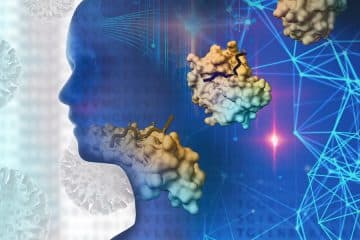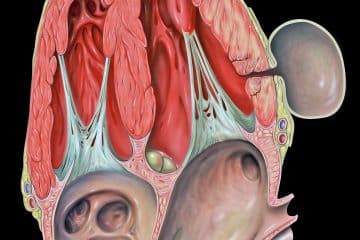No one knows exactly what causes eczema, also known as atopic dermatitis. But this inflammatory skin condition affects between 10 and 20% of young children, and many adults as well, causing itchy, red, sensitive skin and scaly rashes that can break open and ooze. The itching, dry skin, and thick scaly patches are pretty typical. But eczema can cause some other symptoms that you should not ignore.

Eczema can go hand in hand with food allergies. According to the National Eczema Association, about 15% of babies and very young children with eczema also have a food allergy. Food allergies can cause very serious symptoms that need addressing right away, such as:
- Swelling of the mouth and lips
- Itchy mouth
- Hives or a rash
- Gastrointestinal problems like diarrhea, vomiting, or stomach cramps
If you or your child has eczema, and you notice any of these symptoms developing, don’t wait to call your doctor or get medical care. Food allergies can require additional management strategies–and vigilance.

Eczema can lead to weak and broken skin, which is at a high risk of becoming infected. Boils are raised, tender red bumps that develop on your skin. Also known as furuncles, they usually develop around hair follicles. Sometimes they even break open and leak or weep fluid. Furuncles can be caused by a fungal infection, but they can also be a sign of a bacterial infection like staph, which is a notorious culprit for boils. Staph bacteria can lead to crusted-over lesions that are the hallmark of an infection known as impetigo. If you develop impetigo, you’ll need to treat it with an antibiotic ointment or cream to banish it.

If you or your child develop red itchy rashes, that’s pretty normal for a case of eczema. But a patch of red skin that becomes hot, swollen, and even painful could be cause for concern. Cellulitis is a serious infection that can develop deep within the skin, and it often requires antibiotics to clear up. In very serious cases, you might also develop a fever and need IV antibiotics. Don’t wait to seek treatment if you start having a fever and chills, as you might need more intensive treatment.

People with eczema are at increased risk for developing depression. If you or your loved one feels sad or hopeless for an extended period of –more than two weeks–this could be a warning sign. Other signs of depression include a lack of energy, fatigue, difficulty concentrating, a loss of interest in favorite activities, and insomnia. If you notice these kinds of thoughts creeping in and refusing to leave, pay attention to them and seek mental health care. Stress and anxiety can be triggers for eczema flare-ups, so taking care of your mental health can help improve your eczema, as well.

Many people with eczema have trouble sleeping due to the constant itching. This can cause excessive fatigue during the day and interfere with your ability to carry out your normal activities of daily life. Plus, if you can’t seem to quell the itching, you may be tempted to scratch, which can tear your skin and possibly lead to infections. So, if you’re really uncomfortable, and nothing you’ve tried at home seems to help, contact your doctor.
More: Hemorrhoidectomy


